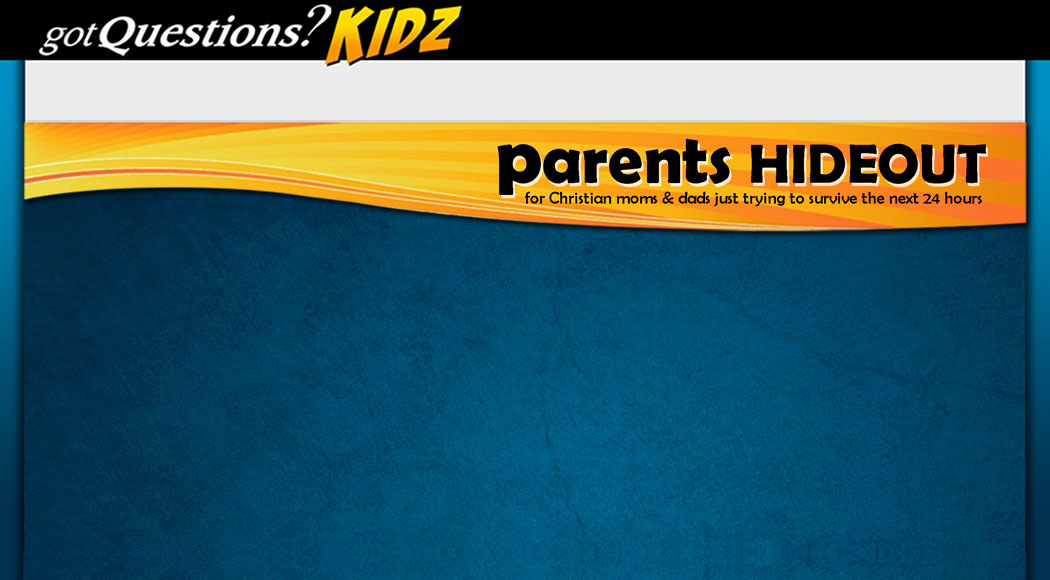
The Little Critics
by Catiana Nak Kheiyn
 Have you ever found yourself staring aghast at your child, the words she just spoke swirling in your head like a tornado of penetrating glass shards? What she said was so demeaning, disrespectful, mean … and worst of all, true.
Have you ever found yourself staring aghast at your child, the words she just spoke swirling in your head like a tornado of penetrating glass shards? What she said was so demeaning, disrespectful, mean … and worst of all, true.
It's not easy or welcome to take criticism from a child (no matter what her age). We naturally get our defenses up. We take it personally. How could she even think about correcting my behavior? Who's the adult here? You're five; I'm thirty-five! Who's smarter?
I hate to break it to you, fellow moms and dads, but even parents are wont to throw a temper tantrum now and then. We may not want to admit it, but there's no denying reality.
My daughter has a terrible habit of correcting behavior. My poor son has two moms now. I'm sure she learned it from me. She's only mimicking what she has seen already, and as quick as I am to point out where she needs correction, she is doubly quick to point out when I'm not doing my job as a mom.
Yes, sometimes it's totally inappropriate and rude. No, I do not have to always listen to you first. No, I do not have to buy you the Toasted Sugar Bombs cereal. No, no, no. I'm not talking about being a doormat for your kids. You have life experience, wisdom, and understanding that they don't; you can and should use those tools. But there are other times when a child's words ring so true, we really have to pause a moment to humbly consider them.
Gulping down my pride, I'll take a breath and tell my little girl that, yes, you're right, I haven't held you enough lately. You're right, listening to you play your violin is more important than straightening up the living room. You're right, what you have to say about your day should be more interesting to me than my friends' status updates on Facebook.
Acknowledging the blossoming wisdom in her young mind shows that I respect her thought process. Everyone is entitled to an opinion. My little kids have opinions too, and they need to know that those opinions matter—whether it is which park is better or if I have spoken kindly to them or not. If I take time to listen and contemplate their words, I'm giving them an example of what it means to respectfully listen to another person. Who knows, maybe they'll end up listening to me too.
Teach your kids to listen by first listening to them. Physically get down to their level. Meet their eyes when they speak. Listen to the little things. Let them choose, and value their opinions. Why? Because one day, when they want to talk to you about the big things, they'll know that you will be there to hear them.
"When pride comes, then comes disgrace, but with humility comes wisdom" (Proverbs 11:2).
Catiana Nak Kheiyn is the webmaster and editor of 412teens.org and regularly teaches other young writers through tutoring and workshops. When she is not writing or hanging out with teens, she loves spending time with her family—a mountain man, two adorable children, and three socially awkward cats. She approaches parenting as an everyday adventure, albeit an often bewildering one, as the little ones in her life are in a constant state of flux.
Photo by Darrell J. Rohl.
comments powered by Disqus
- January 14: Cell Wars
- December 15: When Christmas is Sad
- November 24: Teaching Kids Thankfulness
- October 8: Kids and Chores
- August 11: Shootin' Hoops
- July 8: Children and Gender
- June 9: Live the Music
- May 12: Facing Temptation
- April 20: Boundaries in Fashion
- March 24: Underwear on the Kitchen Floor
- Feb. 16: Parent-Teacher Communication
- February 2: Kids and the Internet
- December 29: New Year's Goal
- December 1: Holiday Stress
- October 22: Boys Will Be Boys
- September 25: Managing a Large Family
- September 10: Teaching Children
Discernment - September 3: Growing Grama:
Dealing with the Heart - August 20: Learning to Love My
Preschooler - August 7: An Attitude of Gratitude
- July 29: Accentuate the Positive
- July 9: The Essay Train
- June 19: Discovering Dyslexia
- June 12: Picky Eaters
- May 28: Hope for the Future
- May 14: A Stay-at-Home Mom
- May 8: Becoming a Man
- April 9: Homework Wars
- April 3: The Life of One Working Mom
- March 5: Resolving Conflict
- January 30: God in the Everyday
- December 31: The Hunger Games
- December 12: Keeping It Real
- December 5: Curing the Gimmes
- November 27: Giving Thanks
- November 19: The Survival Guide to
Raising Girls - November 14: The Daily Download
- November 6: Bad Parenting Day
- October 30: Taking Back October 31st
- October 23: The History of GQKidz.org
- October 15: The Little Critics
- October 8: Temper, Temper
- October 1: Bullies and Tender Hearts
- September 24: Spontaneity & Schedules
- August 27: Keeping Preschoolers Busy
- August 13: Making Wise Media Choices
- August 13: Dirt Soup



